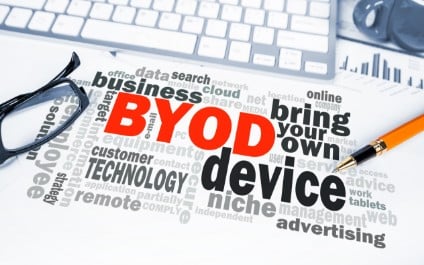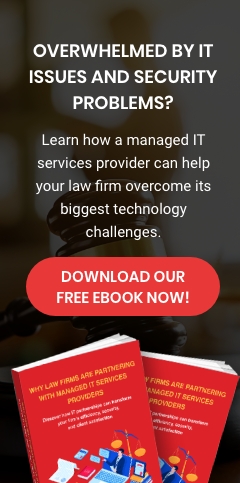BYOD, or bring your own device, is a corporate policy governing the use of personal devices for accessing company data and performing work functions. Initially focused on smartphones, BYOD has expanded to include laptops and other devices in response to the rise of remote work and the need to accommodate a diverse workforce. The COVID-19 pandemic further accelerated the adoption of BYOD as organizations sought to maintain productivity amidst device shortages and supply chain disruptions.
BYOD policies enable employees to use personal devices for work-related tasks, offering potential benefits in productivity, flexibility, and cost-efficiency. However, implementing a successful BYOD program requires careful consideration of associated risks and challenges. To mitigate these concerns, businesses must establish clear guidelines and security measures within their BYOD policies.
To ensure that they create a BYOD policy that is effective and meets their specific needs, businesses must keep the following factors in mind:
- Needs assessment – Clearly define the scope of your BYOD program, identifying the types of devices, data, and resources involved.
- Policy framework – Develop a comprehensive policy outlining acceptable devices, eligible employees, and permissible data access.
- Security measures – Implement robust security controls, such as strong passwords, encryption, mobile device (MDM) software, and virtual private networks (VPNs).
- Employee training – Educate employees on policy requirements, security best practices, and potential threats.
- Monitoring and enforcement – Conduct regular security audits and monitor employee activity to ensure compliance and address potential vulnerabilities.
What are the benefits of BYOD policies?
With a properly implemented BYOD policy, your business and its employees can enjoy:
- Enhanced productivity – Employees often experience increased productivity and efficiency when using personal devices for work tasks.
- Cost savings – BYOD initiatives can reduce hardware and software expenditures by eliminating the need for company-issued devices.
- Boosted morale – Empowering employees with device choice can enhance job satisfaction and foster a positive work environment.
- Flexibility and convenience – BYOD enables employees to work remotely and at flexible hours, promoting work-life balance.
How can businesses implement a secure BYOD policy?
With the convenience and flexibility BYOD offers comes the added challenge of ensuring data security. Implementing a robust BYOD policy is crucial to protect your organization's sensitive information and mitigate potential risks. Here are some steps you can take when implementing a BYOD policy:
- Define the scope of your BYOD policy – Clearly outline the types of devices allowed (e.g., smartphones, tablets, laptops), eligible employees, and the specific data and applications they can access using personal devices. This helps establish boundaries and expectations for employees.
- Implement strong security measures – You should enforce multiple security measures such as password policies, device encryption rules, and MDM software, and require the use of VPNs when accessing company data.
- Train your employees – Conduct comprehensive training sessions to educate employees on the BYOD policy, security best practices, and potential risks. Cover topics such as phishing scams, malware threats, and the importance of data confidentiality.
- Establish clear guidelines for data usage – Clearly define data ownership, access, and backup protocols to ensure that business data is handled appropriately.
- Monitor and enforce the policy – Conduct regular data audits and formulate an incident response plan. You should also clearly outline and enforce the consequences of noncompliance within your organization.
- Consider third-party solutions – A reputable IT consultant like USWired can simplify complex security tasks and implement cloud-based security solutions to give your security system a boost.
- Stay updated on emerging threats – Long-term data protection hinges on continuous updates to your hardware, software, and knowledge banks. Conduct regular tech updates and security information education sessions for your team.
By implementing a well-crafted BYOD policy, you can effectively balance the benefits of employee-owned devices with the need to protect your organization's sensitive data. Follow the guidelines outlined in this blog to create a secure and efficient BYOD environment that empowers your employees while safeguarding your business.
Need assistance implementing a BYOD policy for your business? USWired can help. Contact us today to get all the IT support you need.



